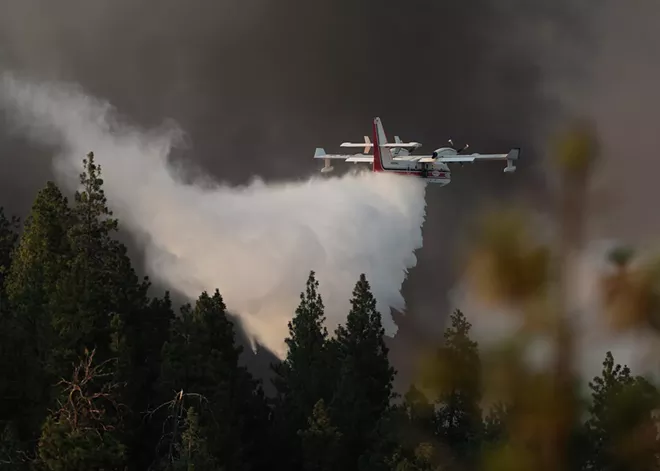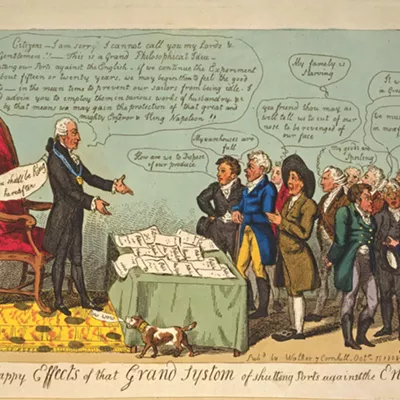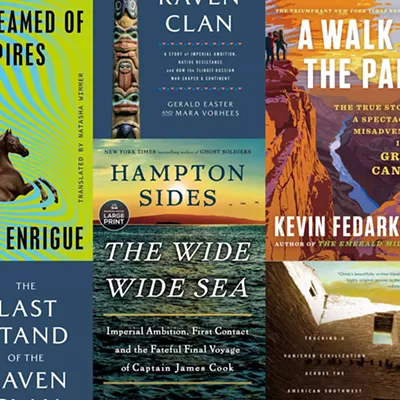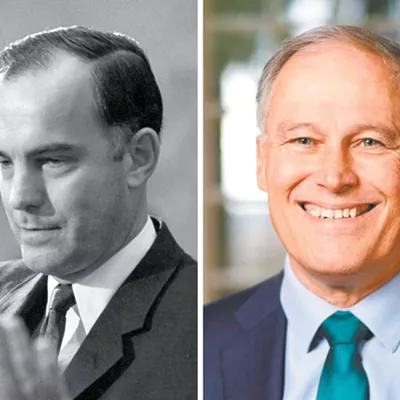
This morning, I woke up with fire smoke gripping my lungs, something that has become a normal part of August. Earlier this week, a buddy and I canceled a fishing trip because the river's too warm. That's not normal yet, but every year it's becoming more of a concern. I just read about a coastal town that's being threatened by the rising ocean.
And unless we act, we haven't even begun to experience how the new climate will change our lives.
That's why Washington state's squandering of the last 12 years is so tragic.
Twelve years ago, Gov. Jay Inslee aspired to transform Washington into a model for how states could address climate change. Given Washington's wealth, high education level and environmental ethic, he might have succeeded. Instead, after his 12 years in office, voters have demanded to decide, on the November ballot, whether to keep or kill Inslee's cap-and-invest carbon tax (I-2117) and phase-out of natural gas (I-2066).
Regardless of whether these initiatives pass or fail, the fact that hundreds of thousands of voters demanded they be given the opportunity to reject Inslee's programs (and that supporters feel they must spend millions of dollars defending them) reveals how Inslee has failed to build the climate consensus we need.
Building that consensus would have required helping people understand why climate action is necessary, would have involved considering alternative approaches and would have required being honest about how much the cost of certain fossil fuels will rise.
Instead, Inslee misled people about fuel and electrical costs and sledgehammered a carbon tax and a natural gas phase-out into law. In November, it might come undone.
The cap-and-invest carbon tax was ramrodded past Republican and some Democratic opposition. Some opposed the measure because the money the program collects is not spent based on climate scientists' recommendations, but instead by the governor's Office of Equity — based on recommendations from vulnerable populations, labor unions and sovereign tribes. Since 40% of the funded projects don't need to be tied to reducing carbon emissions, I'm politically cynical enough to question whether the cap-and-invest program is a way to funnel money to groups supporting the governor and his party.
Others opposed cap-and-invest because it raises gas prices. Republicans offered a carbon tax that wouldn't do that, but the governor brushed it aside telling people his proposal would not raise the price of gas, even though his own advisers told legislators that it would.
When it came time to vote on cap-and-invest, all Republicans and a few Democrats voted no, but Inslee had just enough votes. His phase-out of natural gas passed with even less support.
According to KIRO, even progressive environmental groups warned him many people can't afford to convert their homes from natural gas to electricity, and if they did, phasing out natural gas could end up increasing electricity's cost.
But he dismissed dissenting voices. So when the Legislature took it up, the votes he needed weren't there. To keep the bill from failing, the Democratic speaker of the House extended voting until she could hold enough noses and twist enough arms. At 2 am, the governor's natural gas bill passed — barely.
Had the governor listened to people across the state, he probably would have gotten less than he wanted, but could have built an enduring, broader base of support — and a legacy.
Instead, many who are struggling to pay higher housing, food and energy bills don't see why they should pay for programs that won't have any effect on the planet's temperature.
In a July Seattle Times poll, more Republicans, Independents and Democrats opposed Inslee's measures than supported them.
Of course, the governor hasn't yet waged a campaign to save them. He did recently announce a one-time $200 utility credit for low-income families struggling with higher energy bills. A law he signed earlier this year requires that those credits arrive before ballots. At a recent press conference defending his initiatives, Inslee was asked if this was a bribe; he didn't answer.
And those supporting Inslee have amassed millions of dollars that I bet will be spent scaring people about how passing these initiatives will impoverish schools, kids, the elderly, our forests and the health of every Washingtonian.
What's worse, it was revealed late last week that these progressive groups have for months been maneuvering to force the state to recertify initiative signatures, in an effort to remove the initiatives from the ballot. Fortunately, the Washington Supreme Court shut that down.
But resorting to doling out money, scaring people and trying to deny people the right to vote admits that over the last 12 years the governor failed to convince them we need an aggressive climate strategy.
Imagine if we'd spent the last decade incorporating into a climate strategy the concerns of rural citizens and the aspirations of urban residents; if we'd focused on developing carbon pricing programs that didn't unfairly burden those already up at night anguishing over which bills to pay. Imagine: Washington could have become the model for how states reduce carbon emissions.
But all that would have taken humility, patience, work and imagination. In short, leadership.
Whether these initiatives pass or fail, we will only sustainably address climate change if the next governor levels with us about what that involves, and — from the Palouse to the Olympic Peninsula — forges a carbon reduction consensus among the people. And that needs to happen soon. ♦
Bill Bryant, who served on the Seattle Port Commission from 2008-16, ran against Jay Inslee as the Republican nominee in the 2016 governor's race. He lives in Winthrop, Washington.























